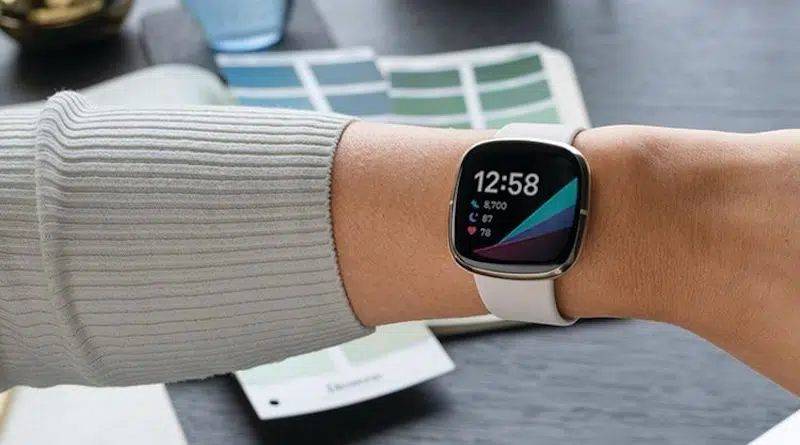This new wearable can image a bodily organ as well as an ultrasound
SOURCE: HTTPS://INTERESTINGENGINEERING.COM/
NOV 16, 2023
Google seeks FDA approval to market Fitbits as medical devices
SOURCE: GADGETSANDWEARABLES.COM
MAR 25, 2022

Google is looking to market Fitbits as medical devices in the US. It has submitted data to the FDA for a feature that passively monitors users’ heart rhythms for signs of irregularities.
The regulatory paperwork was actually done by Alphabet Inc, which is the parent company of Google. Fitbit sits under its umbrella ever since the recent acquisition.
The passive heart rate monitoring feature has been in testing for a while now. This tech analyses wearers’ heart rhythms using the photoplethysmography (PPG) sensors that can be found on most of Fitbit’s wearables. So this is quite different and should not be confused with Fitbit Sense’s ability to get these types of readings from its ECG sensor. The company already has FDA approval for that.
The benefit of using PPG sensors is the fact that they work passively and continuously in the background by tracking the blood flow in a user’s wrist. ECGs are taken only on-demand, and Sense and Charge 5 are the only Fitbit devices with this functionality.
The company’s vehicle to assess how accurately its devices can detect atrial fibrillation (AFib) via a PPG sensor is the Fitbit Heart Study. This has been conducting tests on 450,000 individuals for a while now. To date, the passive monitoring has flagged up some 5,000 people for a follow up appointment.
Results of the study published last November show that Fitbit’s algorithm is pretty good at spotting undiagnosed signs of Afib. And that such devices could be used for spotting first signs of the condition.
Although there were some false positives, the study demonstrates that Fitbit’s heart rate algorithm, when combined with a wearable ECG monitor patch, delivers a 98% positive predictive value. Fitbits, therefore, have the potential to be used for massive screening for Afib. Which, in turn, would reduce medical costs on a wide scale. The results were presented at the annual scientific sessions of the American Heart Association.
Since the outset, the primary goal of the Fitbit Heart Study was to look for approval from the FDA for passive monitoring of Afib. Now that Google has submitted the feature for approval, it should become available to all. But this can be a tricky process. For now there is no timescale on when the stamp of approval from the FDA could land, so it could take a while.
LATEST NEWS
Augmented Reality
Hi-tech smart glasses connecting rural and remote aged care residents to clinicians
NOV 20, 2023
WHAT'S TRENDING


Data Science
5 Imaginative Data Science Projects That Can Make Your Portfolio Stand Out
OCT 05, 2022

SOURCE: HTTPS://INTERESTINGENGINEERING.COM/
NOV 16, 2023
SOURCE: HTTPS://WWW.AZOSENSORS.COM/NEWS
AUG 28, 2023
SOURCE: WWW.WHATGADGET.NET
JUL 11, 2023
SOURCE: HTTPS://WWW.THEHINDU.COM/SCI-TECH/TECHNOLOGY/INDIAS-WEARABLE-MARKET-GREW-47-IN-2022-BOAT-MAINTAINS-LEAD-REPORT/ARTICLE66493121.ECE
JUN 30, 2023
SOURCE: THECONVERSATION.COM
OCT 16, 2022